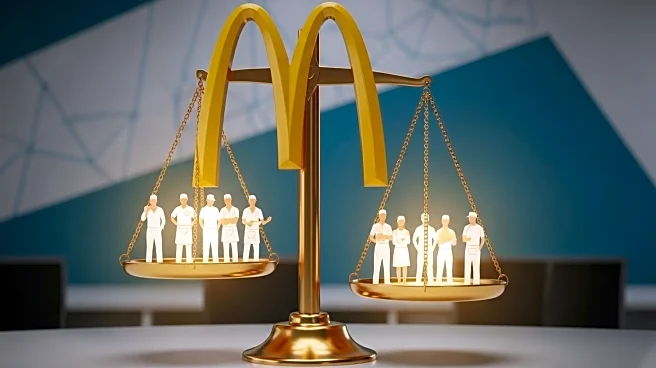What's Happening?
McDonald's has voiced criticism against the U.S. restaurant industry's practice of allowing tipped wages, which permits managers to pay servers less than the minimum wage as long as customer tips make up the difference. Chris Kempczinski, McDonald's Chairman and CEO, highlighted that in many states, sit-down restaurants can pay servers as little as $2.13 per hour, a federal minimum set in 1991. This practice creates an uneven playing field, as it essentially shifts the burden of labor costs onto customers. Kempczinski supports President Trump's efforts to eliminate federal taxes on tips, although this policy does not benefit McDonald's workers, who do not earn tips. He advocates for a uniform minimum wage policy across all states, similar to those in California, Nevada, and Minnesota, where restaurants are required to pay a minimum wage before tips are added.
Why It's Important?
The debate over minimum wage policies is significant as it impacts poverty levels and employee turnover in the restaurant industry. McDonald's stance highlights the broader issue of wage inequality and the financial instability faced by tipped workers. By advocating for a consistent minimum wage policy, McDonald's is pushing for reforms that could lead to more equitable pay structures across the industry. This move could potentially influence public policy discussions and legislative actions regarding wage standards, affecting millions of workers in the service sector. The company's departure from the National Restaurant Association over policy differences underscores the growing divide within the industry on how to address wage disparities.
What's Next?
The conversation around raising the federal minimum wage is likely to continue, with potential legislative proposals and discussions among policymakers. McDonald's advocacy for uniform wage policies may prompt other industry leaders to take a stance, potentially leading to a shift in industry standards. Stakeholders, including restaurant owners, employees, and policymakers, will need to navigate the complexities of implementing wage reforms that balance business sustainability with fair compensation for workers.









